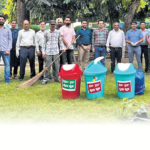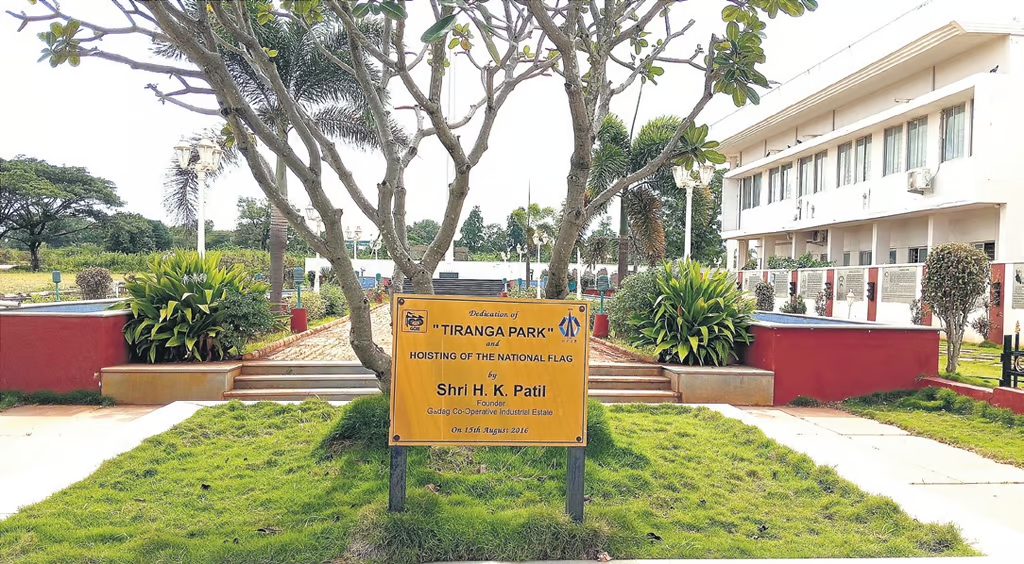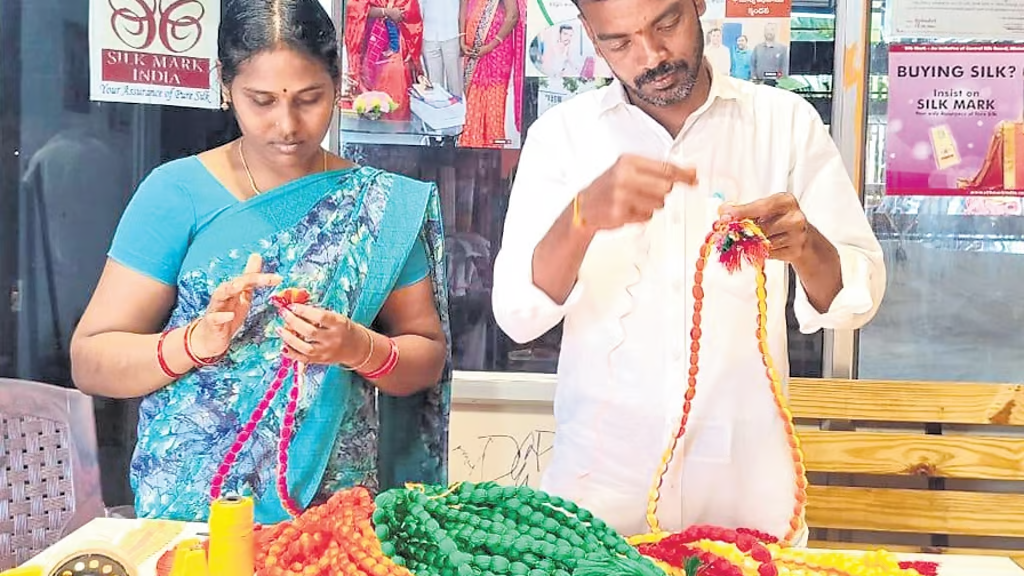Working towards reversing environmental damage, DFO Dharmveer Dairu explains to Harpreet Bajwa how he recycled discarded plastic bags during tree plantation initiatives and sold them to generate revenue
PUNJAB : Located between the Ravi and Beas rivers, the small city of Pathankot in Punjab was home to a tree plantation drive aimed at restoring the ecological balance that had been disrupted by extensive mining and deforestation. However, the city faced a challenge: the disposal of plastic bags used to secure the young saplings.
It was at this juncture then that a young Indian Forest Service (IFS) officer Dharmveer Dairu was posted as Divisional Forest Officer (DFO) of Pathankot in July 2022. Concerned over the situation, he embarked on an initiative of recycling the discarded waste plastic bags and selling them to the scrap dealers. To date, 3,300 kilograms of such bags have been collected, re-cycled, sold and the proceeds used for various welfare activities, including supporting Self-Help Groups (SHGs).
After taking charge as DFO, Dairu was startled to learn that 5,000 kg of plastic had been used over the past four years, primarily in the form of low-density polyethylene (LDPE) bags to secure the saplings. A huge amount of these bags were still found strewn around the plantation site – an alarming situation that demanded an urgent redressal.
The 2018 batch IFS officer of Punjab cadre says, “The dumping of plastic waste at the sites was causing environmental damage. Collection and recycling of this plastic reduced substantial carbon dioxide emission to atmosphere. We can also generate some income for the locals and environment.’’
“The plastic bags harm the environment, negating the very goal of reforestation and conservation. Plastic waste not only litter the sites, but also lead to soil, air, and water pollution. This buildup posed a risk to wildlife, often leading to ingestion or entanglement.
The plastic, if not managed properly, results in serious ecological degradation. Each kilogram of LDPE has a carbon footprint of approximately 6 kg of CO2,’’ he said. Thus, the plastic bag collection initiative was born, aiming to clean up the plantation sites and ensuring their recycling. The forest guards and block officers are also involved in the drive.
He says, “Over the past three years, the forest department teams have successfully collected and recycled plastic bags of about 3,300 kg from all plantation sites in the division.”
“This year, we generated a revenue of approximately Rs 20,000 by selling the plastic to scrap dealer. The revenue is being utilized to make forest division campus plastic free and ensuring proper management of waste generated,’’ he says. A notable achievement of this initiative is the reduction in carbon dioxide emissions.
Recycling plastic has significantly reduced greenhouse gas emissions, saving approximately 20,000 kg of CO2, thus contributing to climate change mitigation. This model can be replicated across Punjab, where the forest department plants over 50 lakh saplings annually. The SHGs are being encouraged to produce more cloth bags, with efforts underway to market these products, ensuring the initiative’s sustainability and further reducing the environmental impact of plastic waste, Dairu adds.
“Most of the SHGs are located in Dhar block area with women as majority members. They make cloth bags. We support them by providing raw material and making marketing linkages,’’ he added.







